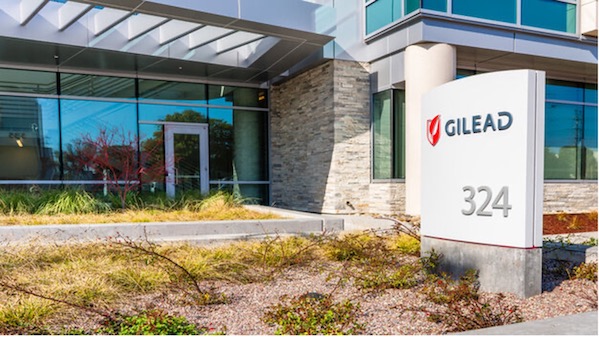Gilead’s Trodelvy Shows Potential as First-Line Treatment in NSCLC
September 13, 2023
Source: drugdu
 630
630
By Tristan Manalac
 Pictured: Gilead's corporate headquarters in California/iStock, Sundry Photography
Pictured: Gilead's corporate headquarters in California/iStock, Sundry Photography
Early data from the Phase II EVOKE-02 study showed that Gilead’s Trodelvy (sacituzumab govitecan-hziy), combined with Merck’s anti-PD-1 therapy Keytruda (pembrolizumab), demonstrates promising efficacy in patients with metastatic non-small cell lung cancer, the company reported Sunday.
However, the trial also detected worrying safety signals, with 18% of participants dropping out due to side effects. One patient died due to treatment-related sepsis.
Nevertheless, the overall safety profile of Trodelvy in EVOKE-02 was generally consistent with what had previously been established. The most common treatment-emergent adverse events were diarrhea, anemia and asthenia.
EVOKE-02 is an open-label, multi-cohort Phase II study with 224 patients enrolled. The trial assessed the combination of Trodelvy and Keytruda, with or without additional chemotherapeutic agents such as carboplatin or cisplatin. Advanced or metastatic non-small cell lung cancer (NSCLC) patients were enrolled regardless of PD-L1 expression status.
The study’s primary endpoint is objective response rate and the percentage of participants with dose-limiting toxicities. Additional efficacy metrics include overall survival, progression-free survival, disease control rate and duration of response.
Sunday’s data come from two cohorts: one including patients with a PD-L1 tumor proportion score (TPS) of at least 50% and another with patients who had TPS less than 50%.
Combining data from both cohorts, the combination regimen resulted in an objective response rate of 56% and a disease control rate of 82%. Median duration of response had not yet been reached at the time of the preliminary analysis.
Bill Grossman, senior vice president and therapeutic area head of Gilead Oncology, called EVOKE-02’s early findings “encouraging,” adding that these also support the company’s ongoing Phase III EVOKE-03 study. The late-stage trial is comparing the combination regimen versus Keytruda monotherapy in the frontline setting in patients with metastatic, PD-L1-high NSCLC.
Trodelvy is a first-in-class antibody-drug conjugate (ADC) that works by seeking out the surface antigen Trop-2, which is commonly found in several tumor types, particularly breast and bladder cancers. Its target specificity allows Trodelvy to deliver its payload SN-38, a topoisomerase-I inhibitor, directly to the cancer cells.
The FDA first approved Trodelvy in April 2020 for metastatic, triple-negative breast cancer, and the ADC has since picked up additional authorizations in urothelial cancer and other types of breast cancer. It comes with a boxed warning for severe or life-threatening neutropenia and severe diarrhea.
In January 2022, Gilead teamed up with Merck to study the synergy between Trodelvy’s Trop-2-targeting mechanism with Keytruda’s proven PD-L1 action in NSCLC. EVOKE-02 and EVOKE-03 are part of this collaboration.
Trodevly has not yet been approved for NSCLC and its combination with Keytruda for any use remains investigational, Gilead noted in Sunday’s announcement.
Read more on
- The first subject has been dosed in the Phase I clinical trial of Yuandong Bio’s EP-0210 monoclonal antibody injection. February 10, 2026
- Clinical trial of recombinant herpes zoster ZFA01 adjuvant vaccine (CHO cells) approved February 10, 2026
- Heyu Pharmaceuticals’ FGFR4 inhibitor ipagoglottinib has received Fast Track designation from the FDA for the treatment of advanced HCC patients with FGF19 overexpression who have been treated with ICIs and mTKIs. February 10, 2026
- Sanofi’s “Rilzabrutinib” has been recognized as a Breakthrough Therapy in the United States and an Orphan Drug in Japan, and has applied for marketing approval in China. February 10, 2026
- Domestically developed blockbuster ADC approved for new indication February 10, 2026
your submission has already been received.
OK
Subscribe
Please enter a valid Email address!
Submit
The most relevant industry news & insight will be sent to you every two weeks.



